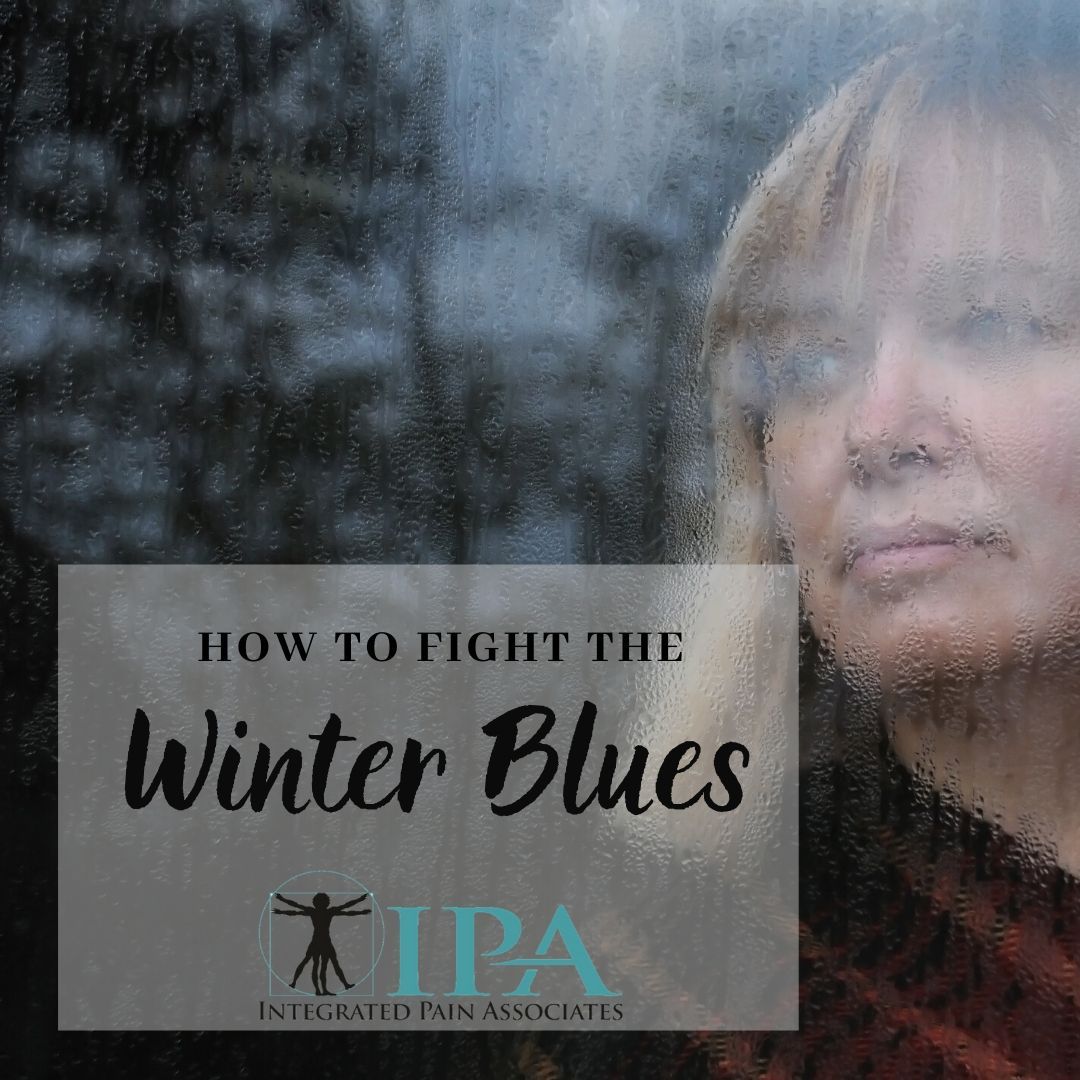Chronic Pain, Winter Blues, and Ways to Overcome Both
Living with chronic pain can elevate feelings of depression. Similarly, people who live with depression also experience chronic pain. The winter season often results in an increase in depression, typically knowns as a seasonal affective disorder, and those living with pain often experience increased winter blues. Consequently, the link between pain and depression is strong.
How does chronic pain impact your mood?
Chronic pain from an injury or a medical condition can have several different effects on the body ranging from increased levels of cortisol, the stress hormone, to lack of energy, a decrease in physical activity, and mood disorders. Chronic pain can also disrupt sleep, causing chronic and constant fatigue. Eventually, persistent pain and fatigue can cause irritation as well as feelings of being overwhelmed, anxious and depressed. The link between pain and depression is complex yet strong and many individuals who live with chronic pain find the pain-depression cycle difficult to break.
How to Break the Pain-Depression Cycle
Chronic pain and depression often go hand-in-hand, so it makes sense that the two are also effectively treated together. The key is to report feelings of depression to a medical doctor so that the condition is not overshadowed by pain. In fact, about 50 percent of chronic pain patients suffer from depression due to chronic pain and find relief from treatment that focuses on relieving both conditions.
Following are important steps to follow when chronic pain is leading to depression:
- Seek out an experienced pain specialist. The team at Integrated Pain Associates works with patients to identify the cause of chronic pain and target underlying medical conditions. Developing a comprehensive pain management plan is important to restoring a person’s quality of life, which is diminished after months or even years of living with pain.
- Talk to a doctor about depression. Whether it’s the seasonal blues or long-term feelings of depression caused by chronic pain, IPA, we take a whole-person approach to care so that we’re treating the root cause and not just masking symptoms.
- Exercise. People in pain often do not want to move let alone exercise or go to the gym. However, a sedentary lifestyle can intensify chronic pain, causing the body to become stiff and achy from lack of movement. Discuss with your pain specialist about easing into a physical activity such as walking or swimming. Studies have shown that physical exercise helps the body heal as well as releases hormones and brain chemicals that have similar mood-enhancing effects to antidepressants.
- Eat healthy. Depression is more common in the winter months. With less sunlight and outdoor time, the body’s natural levels of vitamin D decrease, causing fatigue, lack of energy, and overall malaise. Incorporate supplements and foods that are high in vitamin D such as fatty fish, fortified dairy products, and certain nuts into your daily diet.
- Take in some sun. The winter months are darker and therefore, more depressing for many people. Couple this with chronic pain and mood is bound to falter. Make sure to get outside during the daylight hours to provide the brain with natural sunlight, which also provides our bodies with natural vitamin D. An added benefit: getting outdoors, even in the cold, is also a good way to add movement to your daily routine.
What to do about chronic pain?
When chronic pain leads to feelings of depression, the pain specialists at Integrated Pain Associates work to develop a pain management and treatment plan that is individualized and focused on restoring function and quality of life. Taking control of your pain will have long-lasting mind-body effects.
Call us at 254-245-9175 to make an appointment or use the form on our site to send us a message.

